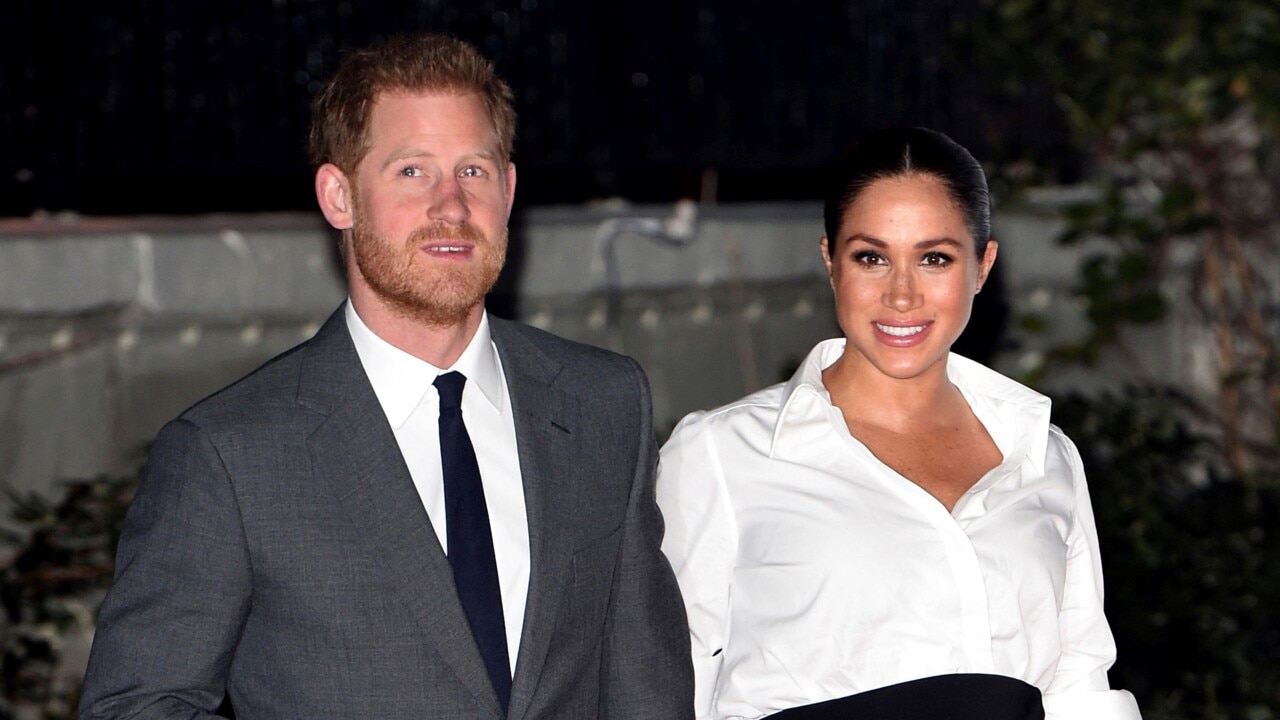In recent years, the marriage of Prince Harry and Meghan Markle has become a focal point of media scrutiny, particularly regarding their tumultuous relationship with the British Royal Family and the press.
Their fairy tale wedding in 2018 captivated millions, but since then, things have taken a dramatic turn.
The couple’s decision to step back from royal duties in 2020 marked a significant shift, leading to a series of revelations that have sparked intense debate.
The couple’s explosive interview with Oprah Winfrey in March 2021 sent shockwaves through the monarchy and beyond.
They made startling allegations, including claims of discussions about the skin color of their son Archie and Meghan’s struggles with mental health, which they say were dismissed by the palace.
These revelations not only tarnished the image of the Royal Family but also reignited conversations about racism and mental health in the UK.
In response to the interview, the Royal Family acknowledged the seriousness of the issues raised while also questioning some of the specific claims made.
This acknowledgment, however, did little to mend the apparent rift between Harry, Meghan, and their royal relatives.
With so many unanswered questions lingering in the air, the narrative surrounding this royal saga continues to evolve.
One voice that has emerged in this ongoing discussion is that of Ken Wharfe, a former Royal Protection Officer who served the royal family for years, including as a bodyguard to Princess Diana.
Wharfe has been outspoken in his criticism of Harry and Meghan’s actions and the accusations they’ve leveled against the monarchy.
His unique perspective, shaped by years of experience within the royal household, offers a contrasting view to the couple’s narrative.
Wharfe’s tenure as a Royal Protection Officer from 1987 to 1993 allowed him an intimate glimpse into the life of Princess Diana and her struggles, particularly during her turbulent marriage to Prince Charles.
In his memoir, Wharfe describes a close friendship with Diana, which provides context for his skepticism regarding Harry and Meghan’s claims.
Following the Oprah interview, he felt compelled to voice his disagreement, citing his own experiences as evidence against some of the couple’s assertions.
For instance, Harry attributed their departure from the UK primarily to the relentless scrutiny of the press.
However, Wharfe disputes this notion, arguing that the pressures of royal life are multifaceted and cannot be solely blamed on media attention.
He suggests that other underlying issues must have contributed to their decision to leave.
Another point of contention for Wharfe is Meghan’s claim of inadequate support from the palace when she joined the royal family.
Drawing from his experience, he emphasizes that new royal members typically receive extensive training and guidance on various matters, including media relations and royal protocol.
This leads him to question Meghan’s assertion that she lacked the necessary support.
Wharfe also challenges Harry’s claims of neglect regarding Meghan’s mental health struggles.
He argues that the royal household employs trained professionals dedicated to the well-being of its members.
Given this structured support system, Wharfe finds it hard to believe that Meghan would have been left without assistance during her time of need.
When it comes to the allegations of racist remarks about Archie, Wharfe acknowledges that racism exists in society, but he hesitates to label the Royal Family as complicit.
His long-standing relationship with the Windsors leads him to believe that they do not endorse such attitudes.
The complexities of these accusations further complicate the narrative surrounding Harry and Meghan’s departure.
Wharfe believes that the issues between Harry, Meghan, and the royal family are likely rooted in deeper, more intricate dynamics than what has been publicly disclosed.
He points out that navigating non-traditional roles within such an established institution can lead to friction, especially when expectations clash.
Instead of airing their grievances publicly, Wharfe advocates for private discussions within the family to resolve conflicts.
He contends that bringing personal matters into the public eye has only exacerbated tensions and damaged the reputations of all parties involved.
The relationship now appears to be at a breaking point, with little hope for reconciliation.
Additionally, Wharfe reflects on Harry and Meghan’s transition to life outside the royal sphere, expressing doubts about their ability to find true freedom while still holding onto their royal titles.
He warns that relying on their past connections may hinder their quest for independence.
As they navigate their new lives in North America, the challenge of carving out a new identity looms large, particularly for Harry.
While Wharfe expresses sympathy for their struggles, he ultimately views their situation as a product of their own choices rather than outright mistreatment by the firm.
His insights provide a critical lens through which to examine the complexities of their story, revealing that the truth may lie somewhere amid the competing narratives.
The ongoing saga of Harry and Meghan continues to captivate audiences around the world, with Wharfe’s perspective adding depth to the conversation.
His insider knowledge of royal operations presents a compelling counterpoint to the couple’s public narrative, highlighting the multifaceted nature of their experiences.
As the debate rages on, one thing remains clear: the future of Harry and Meghan, intertwined with the monarchy they distanced themselves from, is still very much uncertain.










